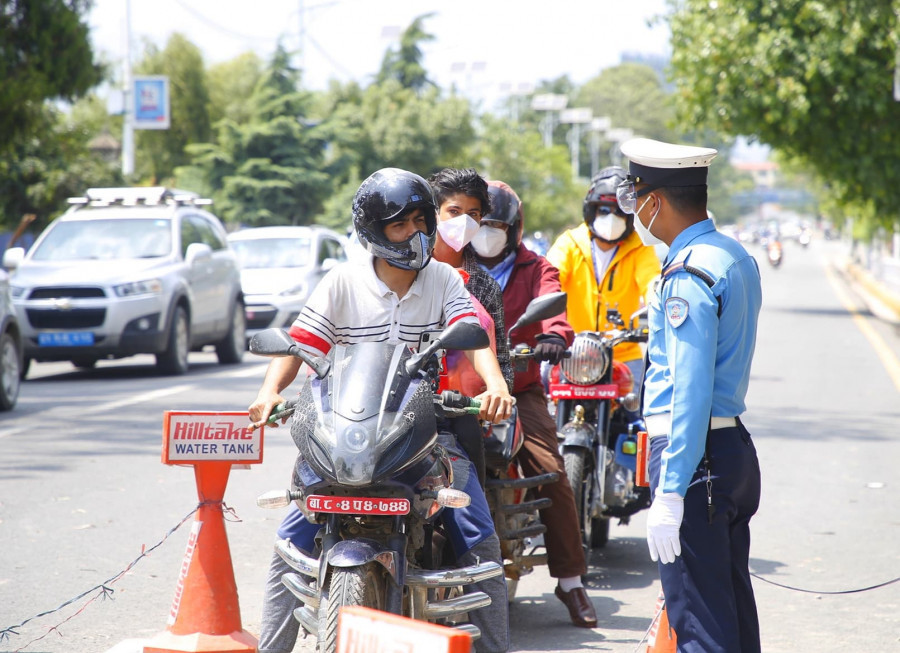Editorial
Slew of inconvenient measures
Restrict the number of autos, but the odd-even rule should be exempt for public vehicles.
With an increase in the number of registered cases, the chief district officers of Kathmandu, Bhaktapur and Lalitpur decided to re-introduce a slew of measures designed to curb the spread of the virus. But no sooner had they introduced them widespread disapproval rose from all quarters, especially from public health experts. The prohibition under criticism is the odd-even rule for vehicles plying the valley's streets. The administration in Nepal is pretty well known for passing orders based on their whims and fancies. The recent decision demonstrates that the rule of odd-even numbered vehicles on the streets does not seem to have been carefully considered.
While in principle the odd-even measure prevents people from making unnecessary trips, a blanket ban on vehicles means it will have the opposite effect instead of the one desired by the administration. Fewer public vehicles mean unnecessary pressure on those vehicles on the streets to ferry passengers for the day. As it is, public vehicle operators care little about following the guidelines on social distancing. All they care about is how much money they can generate by cramming as many people as possible.
Crammed vehicles running around with absolute disregard for public safety and people walking around the streets with their masks tucked under their chins are some of the issues that the authorities need to be tackling rather than applying a blanket ban on vehicles. While it is necessary to restrict the number of automobiles on the streets, the odd-even rule should be exempt for public vehicles. Instead, the authorities should strictly enforce the maximum passenger limit for each vehicle drummed up in the past but never entirely implemented. This will allow a more even spread for the passengers, and public vehicles caught flouting the passenger limit should be made to face the wrath of the law.
Another such measure that is causing a great deal of inconvenience amongst the masses is the need to carry proof of vaccination. The initial announcement was designed to restrict unvaccinated people from accessing public facilities such as airports, restaurants, hotels, offices, parks and government services. But now, it has been extended to people requiring a booster dose. This particular measure may precipitate the need to get vaccinated, but why did the authorities wait until the onset of the third wave to ensure that people got their jabs?
People are frantically running around to get vaccinated and queuing up for hours on end, and for the unlucky ones who have lost their cards for the first and second doses, there seems to be no respite either. No official will go out of their way to extract the details of those who have lost their vaccination cards, enabling them to get their third dose. There wasn't any effort to digitalise the vaccination roster in the first instance, hence all this kerfuffle. It also means that an unscrupulous person could hoodwink the authorities into getting multiple shots, stating it is their first, all at the expense of more deserving people.
Just because these restrictions do not necessarily seem to apply to lawmakers, decision-makers and those who occupy other esteemed public positions, why should the inconvenience be heaped on the masses in the name of public safety? While they whiz around in protected motorcades, the least they can do is think of ways to alleviate the people's hardships, not add to them.




 9.89°C Kathmandu
9.89°C Kathmandu














